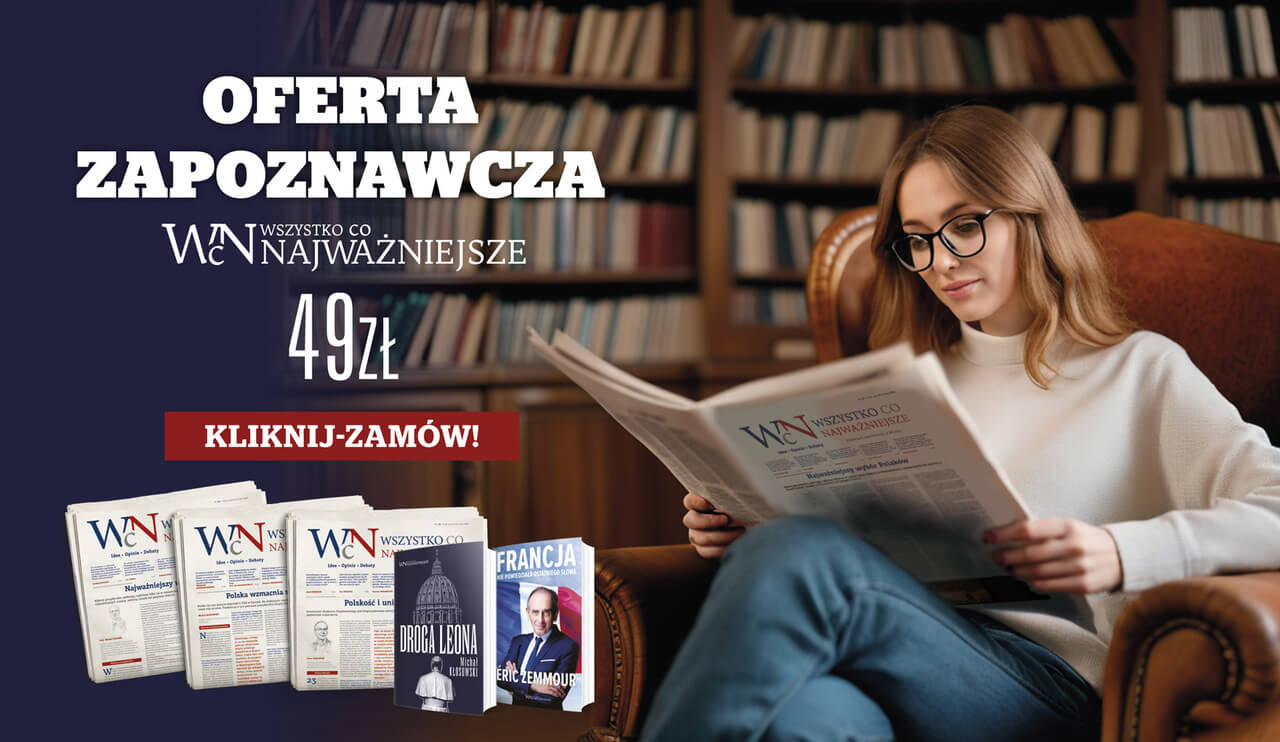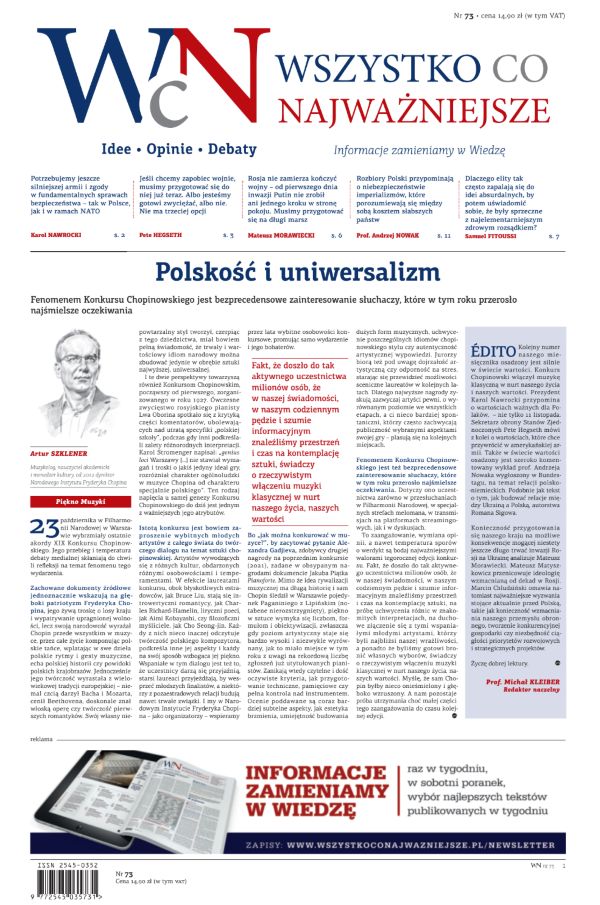 Culture Above Ideology. A lesson from Wrocław
Culture Above Ideology. A lesson from Wrocław
In a world increasingly divided by identity, beliefs and tribal narratives, one city in Central Europe shows a different path. Wrocław, formerly the German Breslau, is more than just a symbol of post-war reconstruction – it is a city that chose culture over ideology. And most importantly, it continues to do so.
From Stein to Różewicz and Grotowski
.This commitment, however, did not first arise after the war. Pre-war Wrocław was one of the most important intellectual centres of German culture. Edith Stein, a philosopher and student of Husserl, later a Carmelite nun and saint in the Catholic Church, was born here. Her journey from rational thought to mysticism, from a Jewish identity to a Catholic testimony and from an academic life to martyrdom in Auschwitz, is an example of how cultural clashes can yield spiritual and intellectual fruit. For her, Wrocław was not just a location but also a formative space where her journey began. Wrocław was a city that kept teaching dialogue, even as the world was no longer willing to engage in it.
In the 1920s, the city was home to the architectural avant-garde, with Max Berg designing the Centennial Hall as a manifesto of modernism, a secular cathedral of the future. Breslau was a true melting pot: German in language but Central European in spirit, it was situated between the Moravian Gate on one side and the heartland of Polish culture on the other. And although history tore that reality apart, its traces endure – in stone, in archives and in the soul of the city.
Theatre: A Laboratory of Dialogue and Identity
.After the war, when Wrocław was experiencing both agony and rebirth, culture played a crucial role in restoring more than just the city’s walls – it helped restore its sense of purpose. It was here that Tadeusz Różewicz penned his sparse, wounded poems, so distrustful of language. Poems for times when every word could be turned against the truth; post-propaganda poems, written in the shadow of a world where Goebbels’ propaganda had transformed language into a weapon intended to destroy. Różewicz, a survivor, wrote as if every sentence had to pass through a trial of fire and silence. His works were indeed mutilated, torn from the silence after the Holocaust. It was in Wrocław that Jerzy Grotowski transcended the boundaries of theatre, turning actors into mediums of spiritual tension. His Laboratory Theatre was more a temple than a stage. Wrocław was a place where culture was not an addition to life but its core; a place of resistance against falsehood. Even during the communist era, the Polish Theatre was a rare space of freedom – rebellious, sometimes risky and always asking questions that the system preferred to ignore. That was far from common. In other cities, culture was often subjugated, but in Wrocław, it fought to preserve meaning.
Although not his hometown, Wrocław was a city Czesław Miłosz kept returning to – a place where he found echoes of the former complex Central Europe: multilingual and wounded, yet still capable of building bridges. It holds the memory of many tongues and many sorrows, yet it also has a remarkable ability to turn trauma into depth.
It’s no coincidence that Paweł Pawlikowski chose to film key scenes of Cold War here. With its faded glamour and dramatic past, Wrocław was the perfect setting for a love story. This city is not afraid of melancholy. It does not hide its scars, but it doesn’t turn them into weapons either.
Culture on a European Scale
.Many cities in Europe can boast of their culture, but few have woven it so deeply into their identity. Wrocław reminds us that true culture does not need an ideological umbrella. On the contrary, it flourishes most fully when it is able to transcend ideology, question it and sometimes openly oppose it.
At a time when Western Europe is grappling with its own cultural tensions – from the struggle over colonial heritage to disputes over the limits of freedom of speech to the renaissance of nationalism – Wrocław offers a subtle yet profound lesson. In a world where culture is increasingly reduced to a political tool, an ideological spearhead or a branding device for identity, the city on the Oder reminds us that culture can and should be so much more: a space for dialogue, depth and reconciliation rather than just a means of identity-driven mobilisation that is so easily triggered in the age of social media.
There is already a concrete example of this. A symbolic moment of this maturity came in 2016, when Wrocław became the European Capital of Culture. Instead of settling for spectacle, the city focused on what is most demanding: memory. In projects like Flow, which explores the multicultural past of Breslau, or in artistic initiatives commemorating Edith Stein, Grotowski and the city’s Jewish heritage, Wrocław showed that it doesn’t shy away from sensitive topics. On the contrary, it has turned them into a source of creative energy. Not by covering up the past, but by confronting it. Not by smoothing over history, but by inviting a shared reckoning and the possibility of deeper understanding.
.Wrocław doesn’t celebrate its history as a triumph but as a responsibility. It shows that culture need not serve any party or dogma. It doesn’t have to validate fleeting political moods. It can be something lasting; a corrective to systems running out of steam, a story that persists when others fade. When political scripts collapse and ideological projects end, culture – the real kind, rooted in questions rather than slogans – endures. Through its past and present choices, Wrocław reminds Europe that culture can be a bridge. It does not have to be a weapon.





